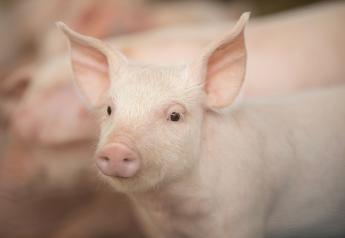Does Smithfield Scare You?

Strong fences make good neighbors. Unfortunately strong fences can’t stop strong odors from being carried over and dropped squarely on the neighbor’s picnic.
It’s hard to stop the smell of animal agriculture. It’s a never ending cycle – animals eat and drink, and then they ‘do their thing.’ Farmers are left to figure out what to do with the literal end result of that cycle. It’s necessary. It’s nutrient-rich. But many, especially those without a nose for the appreciation of its value, find manure a nuisance.
Back when farms were miles from populated areas, the smell of agriculture never really bothered anyone. But when farms got bigger and townies decided they wanted their own acreage out in the country, the “smells like money” crowd met the “smells like s***” adversaries.
Debates ensued. Farmers used the “we were here first” and “what did you expect when you moved next to a farm” arguments. Those that moved to the country countered with “yeah, but we didn’t know it was this bad.”
What was once just a nuisance turned to litigation. The new country residents claimed the smell affected their lungs, that the manure was leaching into the groundwater. Even that it infringed on their religious freedom.
Most of the lawsuits were either settled out of court or dismissed. But then along came Smithfield.
Just recently a federal jury awarded more than $50 million in damages to plaintiffs in a nuisance case against Smithfield Foods. The plaintiffs held Smithfield responsible for intense odor and other disturbances they say prevented them from enjoying their residences. Jurors felt that Smithfield owned the neighbors a standard of care, and should have done more to minimize the odors.
As a dairy producer, or any other non-pork segment of animal agriculture, you might look at this result and say “those are pigs. That could never happen to me.” Well, think again.
It’s called precedent. Now that one jury has awarded damages to one group of disgruntled neighbors, one would assume that the door could be opened for more of these lawsuits, across all aspects of animal agriculture. Activists don’t need much fodder to trigger a lawsuit. Having an actual case that was determined in an actual court of law offers considerable substance.
So if you have lagoons and neighbors within smelling distance of your operation or anywhere you spread manure, get ready. Most large dairy producers that I visit say they have great relationships with their neighbors. They let them know when manure will be spread so clothes aren’t on the clothesline when a good gust of the end product of last week’s ration comes blowing into the yard.
Certainly there’s technology that reduces odor. Lagoon covers help. I’ve stood next to methane digesters and not smelled a thing. Many producers are composting, which reduces odor significantly.
If you’re not doing these things, you’re rolling some pretty expensive dice. Smithfield has the lawyers and financial support to dole out a $50 million penalty. Do you?
What do you think? Does litigation from a neighbor over odor issues, or anything else, concern you? Let me know at mopperman@farmjournal.com







